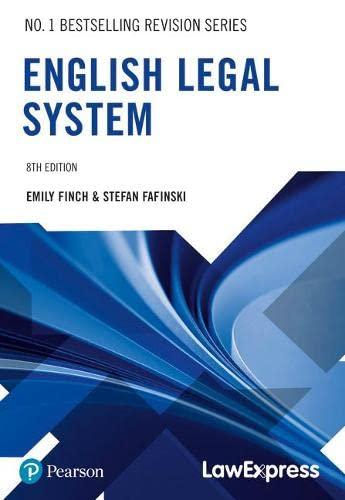Question
Q1. X, Y and Z directors of a company were the major shareholders of the company. X was the chairman of the company. At a
Q1. X, Y and Z directors of a company were the major shareholders of the company. X was the chairman of the company. At a meeting of the Board of Directors it was decided to increase the share capital, Y and Z did not have the money to take up additional shares and feared that in consequence, X would corner all shares and become predominant in the company. So a general meeting was called and it was resolved that the present members alone should not benefit from the prosperity of the company, but others should also share, and a special resolution was passed that the new shares may be offered to about a dozen persons who were not members of the company. X, rushed to the Tribunal, complaining of oppression, saying that Y and Z wanted to throw him out as Director and Chairman of the Company and they had passed a special resolution to bring about a change in the management. (
a) Define what amounts to oppression?
(b) Discuss fully the chances, if any, of X succeeding in the proceeding.
Q2. Q4.Rishi and Raman are partners in an unregistered firm carrying on the business of furniture manufacturing. Rajeev promises to supply timber to the firm and Rs. 25000/- is paid to him as advance. There was short supply of timber and Rs. 5000/- were due from Rajeev to the firm. The partnership is afterwards dissolved and in a division of the assets this debt of Rs. 2000/- is allotted to Raman.
(a)Can Ram recover the amount from Rajeev?
(b)Will the registration of the firm have any effect on the rights of Raman? Advice
Q3. Q5.A scheme of amalgamation of Company X with company Y was presented to the Tribunal for sanction after the scheme was approved by an overwhelming majority of shareholders and secured and unsecured creditors of both the companies at meetings held under Section 230. While the scheme was pending in the Tribunal some of the members requisitioned an extra ordinary general meeting for the purpose of requesting Company X to negotiate with Company Y as according to the requisitionists the exchange ratio was not fair and reasonable.
(a)Can the directors refuse to call the extra ordinary general meeting?
(b)Can the Tribunal prevent the company from holding a requisitioned meeting?
Step by Step Solution
There are 3 Steps involved in it
Step: 1

Get Instant Access to Expert-Tailored Solutions
See step-by-step solutions with expert insights and AI powered tools for academic success
Step: 2

Step: 3

Ace Your Homework with AI
Get the answers you need in no time with our AI-driven, step-by-step assistance
Get Started


